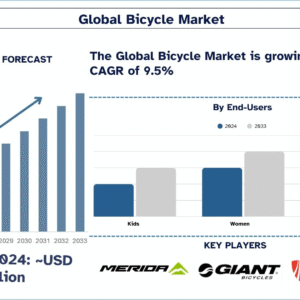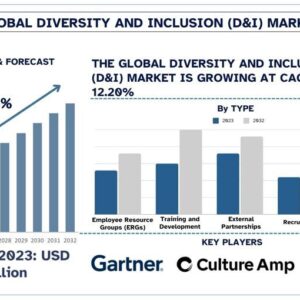India Halal Food Market Overview
According to TechSci Research report, “India Halal Food Market – By Region, Competition, Forecast & Opportunities, 2021–2031F”, the India Halal Food Market was valued at USD 297.66 Million in 2025 and is expected to reach USD 554.35 Million by 2031, growing at a CAGR of 10.92% during the forecast period. This impressive growth trajectory reflects a transformative phase in India’s food and beverage landscape, where religious beliefs, ethical considerations, and modern consumption habits converge to shape demand.
Historically, halal food in India has been primarily associated with Islamic dietary practices, adhering to guidelines that ensure food is prepared according to specific religious principles. However, in recent years, the perception of halal has broadened beyond its religious context. Today, halal certification is increasingly seen as a symbol of hygiene, quality, transparency, and ethical sourcing. This evolution has expanded the consumer base to include non-Muslim consumers who associate halal products with superior safety and purity standards.
India’s large Muslim population—one of the world’s largest—naturally anchors the market, but the growing participation of health-conscious and ethically aware consumers from other communities is driving exponential growth. As India continues to urbanize and digitize, consumers are becoming more discerning about what they consume, how it is sourced, and the assurance of quality behind it. This shift is transforming halal food from a niche segment into a mainstream, high-potential market.
Industry Key Highlights
-
The India Halal Food Market is projected to grow at a CAGR of 10.92% between 2025 and 2031, indicating robust and sustained expansion.
-
The market is witnessing increased adoption among non-Muslim consumers due to its association with hygiene, traceability, and ethical sourcing.
-
Digitalization and e-commerce are emerging as strong enablers, improving product accessibility and transparency.
-
The offline retail channel remains dominant, supported by strong consumer trust and traditional buying behavior.
-
South India has emerged as the fastest-growing region, benefiting from high urbanization, strong food-processing infrastructure, and export-oriented halal initiatives.
-
Government efforts like the i-CAS Halal Certification Scheme are enhancing standardization and credibility across the sector.
-
Rising demand for processed, ready-to-eat, and frozen halal food is expanding the product portfolio.
-
Export potential for Indian halal products is increasing, particularly to the Middle East, Southeast Asia, and Africa.
-
Urban millennials are driving a shift toward clean-label and transparent food choices.
-
Key companies are investing in sustainability, packaging innovation, and direct-to-consumer models to capture new-age consumers.
Download Free Sample Report – https://www.techsciresearch.com/sample-report.aspx?cid=29972
Market Dynamics
1. Market Drivers
a. Large Muslim Population and Religious Adherence
India is home to over 200 million Muslims, providing a naturally strong consumer base for halal products. For many, purchasing halal-certified food is not only a dietary preference but a religious obligation. This foundational demand ensures consistent market stability and provides a strong platform for halal-certified businesses to flourish.
b. Growing Non-Muslim Adoption and Mainstream Appeal
What was once a niche segment is now appealing to a much wider audience. Non-Muslim consumers increasingly perceive halal food as safer, cleaner, and more ethically sourced. With growing concerns about food adulteration, contamination, and animal welfare, halal certification is being recognized as a credible assurance of purity and quality.
c. Rising Awareness of Food Hygiene and Safety
Post-pandemic, consumers have become more cautious about hygiene, freshness, and traceability in food products. Halal certification ensures stringent quality checks across every stage—from sourcing to packaging—thus serving as a trusted symbol for consumers seeking safe and clean food options.
d. Government Support and Certification Initiatives
Government initiatives like the India Certification for Halal (i-CAS) have played a pivotal role in creating standardized certification systems. These efforts enhance the global competitiveness of Indian halal exporters and help local producers build trust among domestic consumers. Furthermore, the Indian government’s focus on expanding agro-processing industries has indirectly boosted halal-compliant production.
e. E-Commerce Growth and Digital Awareness
The rapid growth of online grocery platforms and e-commerce giants like Amazon, BigBasket, and Flipkart, as well as halal-specific e-retailers, has transformed consumer accessibility. These platforms offer detailed certification information, product comparisons, and reviews—factors that build trust and transparency. The pandemic-driven rise in online grocery shopping has further accelerated this trend.
f. Export Potential and Global Demand
India’s competitive advantage in agriculture, meat processing, and seafood production positions it favorably for halal exports. Indian halal-certified products are increasingly in demand in the Middle East, Malaysia, Indonesia, and African nations. Strengthening certification standards and traceability systems will allow Indian producers to further penetrate these global markets.
2. Emerging Trends in the India Halal Food Market
a. Mainstream Acceptance and Cross-Cultural Consumption
Halal is no longer perceived solely as a religious requirement—it’s evolving into a mark of trust and quality. More consumers across religious lines are choosing halal-certified food, considering it synonymous with cleanliness, hygiene, and safety. This trend is particularly strong among younger, educated, and urban consumers.
b. Rise of Halal Processed and Packaged Foods
Urban lifestyles and time constraints have boosted demand for convenient, ready-to-eat, and frozen halal meals. Companies are expanding product lines to include halal-certified snacks, frozen meat, bakery products, dairy, and beverages. This diversification is appealing to both domestic consumers and export markets.
c. Ethical Sourcing and Sustainability
Halal certification increasingly overlaps with global sustainability goals. Ethical sourcing, humane animal treatment, and transparent production processes align with conscious consumerism trends. Brands are integrating sustainability into their halal value propositions to attract eco-aware buyers.
d. Strengthening of Certification and Standardization
With rising consumer demand, multiple certification bodies have emerged. To prevent confusion and enhance trust, the government’s endorsement of standardized certification processes under i-CAS ensures consistent credibility and global acceptance.
e. Integration of Digital Traceability and Blockchain
To enhance consumer confidence, companies are experimenting with digital traceability technologies like QR codes and blockchain tracking. These systems allow consumers to trace the product’s origin and certification details, thereby promoting transparency and accountability.
f. Growing Role of Organized Retail
Modern trade channels, including supermarkets and hypermarkets, are dedicating specific sections for halal-certified products. This development not only caters to existing demand but also educates new consumers about the benefits of halal-certified food.
g. Halal Tourism and Hospitality Synergy
The growing halal food industry also supports India’s halal tourism and hospitality sector, with hotels and restaurants introducing halal-certified menus to attract international Muslim travelers. This synergy strengthens India’s position as a halal-friendly destination.
Market Segmentation Insights
By Product Type
The market includes categories such as meat, poultry, and seafood, fruits and vegetables, dairy products, and others. The meat and poultry segment holds the dominant share, driven by high demand for fresh and frozen halal meat. However, segments like dairy and processed foods are growing rapidly, reflecting a broader diversification of halal-certified offerings.
By Distribution Channel
While online sales are expanding rapidly, the offline segment remains dominant in India. Traditional butcher shops, local meat markets, and grocery stores continue to be key purchase points, especially in Tier 2 and Tier 3 cities. Organized retail formats such as supermarkets and hypermarkets are also expanding their halal-certified product sections, offering consumers a mix of trust and convenience.
By Region
South India stands out as the fastest-growing region in the halal food market. With states like Kerala, Tamil Nadu, Karnataka, and Telangana, the region benefits from a combination of a strong Muslim population, robust infrastructure, and export-oriented industries. The region’s advanced logistics systems, cold-chain networks, and rising middle-class population are further accelerating demand.
Competitive Analysis
The India Halal Food Market is characterized by strong competition among domestic and multinational players striving to establish brand trust, certification authenticity, and product innovation.
Major Companies Operating in the Market
-
Allanasons Private Limited
-
HMA Agro Industries Limited
-
Mirha Exports Private Limited
-
Al-Aali Exports Private Limited
-
Godrej Tyson Foods Limited
-
Suguna Foods Private Limited
-
Zorabian Foods Private Limited
-
ALM Food Products Private Limited
-
Frigerio Conserva Allana Private Limited
-
Al-Faheem Meatex Private Limited
Competitive Strategies
-
Product Diversification: Companies are expanding portfolios beyond meat to include processed foods, dairy, and packaged halal snacks.
-
Export-Oriented Production: Several firms are investing in export certification and packaging infrastructure to meet international halal standards.
-
Digital Branding: E-commerce, influencer marketing, and social media campaigns are being leveraged to raise awareness and brand loyalty.
-
Partnerships and Certifications: Collaboration with recognized halal certification authorities is enhancing credibility and market reach.
-
Focus on Hygiene and Traceability: Companies are investing in advanced processing technologies and clean-label packaging to meet evolving consumer expectations.
Market Competition Outlook
The competitive environment is expected to intensify as new entrants, including start-ups and health-focused brands, enter the halal market. The key differentiators in the next phase will be certification integrity, product innovation, distribution strength, and digital presence.
Future Outlook
The future of the India Halal Food Market is anchored in inclusivity, sustainability, and technological innovation. As consumer preferences evolve, halal will transition from a niche religious category to a mainstream symbol of ethical and hygienic consumption. The increasing intersection of halal with global wellness trends—such as organic, vegan, and sustainable products—will further broaden its appeal.
Halal exports from India are expected to witness substantial growth, particularly in meat, seafood, and processed food categories. Enhanced government support, standardized certification, and investments in food processing infrastructure will position India as a major player in the global halal supply chain.
On the domestic front, urbanization, rising disposable incomes, and digital connectivity will drive awareness and accessibility. The convergence of halal food, e-commerce, and smart traceability systems will define the next phase of market growth. Additionally, corporate initiatives and start-ups focusing on clean-label, premium halal offerings are likely to reshape consumer perceptions and set new benchmarks for quality and ethics.
10 Benefits of the Research Report
-
Comprehensive Market Overview: In-depth analysis of current and future market trends across multiple segments.
-
Accurate Market Forecasting: Provides reliable growth projections and financial insights to guide investment decisions.
-
Identification of Key Drivers: Outlines major factors fueling market expansion and consumer behavior shifts.
-
Emerging Trend Analysis: Explores the latest innovations and evolving consumer preferences in the halal segment.
-
Competitive Benchmarking: Evaluates the market positioning, strengths, and strategies of leading companies.
-
Segmentation Insights: Offers detailed breakdowns by product type, distribution channel, and region for strategic clarity.
-
Investment Opportunities: Highlights high-potential sectors within the halal ecosystem for investors and stakeholders.
-
Policy and Certification Review: Provides an overview of government initiatives and certification frameworks shaping the market.
-
Consumer Behavior Insights: Analyzes the changing preferences of millennial and Gen Z consumers.
-
Strategic Recommendations: Delivers actionable guidance for manufacturers, exporters, and policymakers to capitalize on growth opportunities.
The India Halal Food Market is poised for a transformative decade. What began as a religiously driven category is now evolving into a dynamic, cross-cultural, and globally competitive industry. With consumers increasingly valuing transparency, hygiene, and ethical sourcing, halal-certified food is emerging as a universal standard of quality and trust.
Driven by digital transformation, government standardization, and the rise of conscious consumption, the future of the halal food sector in India looks promising. Companies that focus on certification integrity, technological integration, and consumer education will be best positioned to thrive in this expanding market.
As India aligns with global halal trends and expands its export footprint, the nation is well on its way to becoming a global hub for halal food production and innovation.
Contact Us:
TechSci Research LLC
420 Lexington Avenue, Suite 300,
New York, United States – 10170
M: +1 332 258 6602
Website: www.techsciresearch.com



